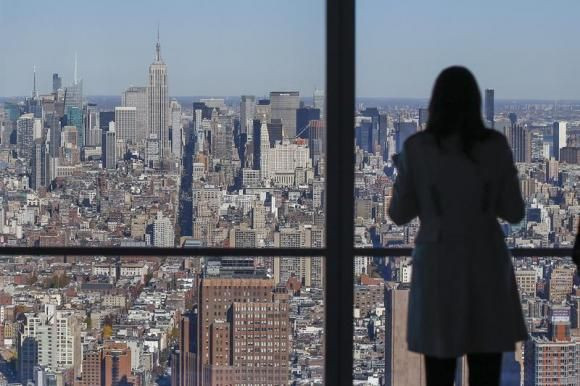NYC's War On Airbnb Is Sweeping Up Some Legitimate Bed & Breakfasts Too

New York City officials are intensifying their efforts to stop the proliferation of short-term apartment rentals listed on Airbnb, but no battle is without its collateral damage. Now small-business owners who run traditional bed-and-breakfasts -- yes, they still exist -- say they’re getting caught in the crossfire of an increasingly contentious fight.
Short-term rentals of fewer than 30 days have been illegal in New York City since 2010, when lawmakers sought to crack down on landlords and tenants who habitually rent out their living spaces using online sharing services such as Airbnb. But owners of licensed bed-and-breakfasts -- the kind that have operated in the city for decades -- say the legislation had the unintended consequence of essentially criminalizing their businesses.
“When they made this law, they didn’t know there were small operators like us,” said Vinessa Milando, owner of Ivy Terrace B&B on East 58th Street. “The reality is, the research wasn’t done, and a blanket law threw the baby out with the bathwater.”
Milando, who has been in business since 1997, said she was initially assured by her city assemblyperson that the ban on short-term rentals would not affect Ivy Terrace. But in July 2011, just a few months after the law went into effect, she said she was visited by the Mayor’s Office of Special Enforcement Task Force and fined $12,000 for running an illegal hotel. The fine was issued despite the fact that Ivy Terrace B&B is registered as a bed-and-breakfast in both the city and state of New York. Milando also has liability insurance and even collects hotel taxes.
Airbnb, conversely, keeps the addresses of its hosts private, and because of that, Milando said she and other “on-the-radar” bed-and-breakfasts are an easy target for enforcement officials who refuse to distinguish between legitimate businesses and illegal hotels. “The people who are getting hit are the ones who are transparent,” she said. “They have an actual address and website.”
A spokesperson for the Mayor’s Office of Criminal Justice, which enforces the city’s multiple-dwelling laws, did not return requests for comment.
Milando said she knows of at least seven bed-and-breakfast owners who have been forced to shut down due to hefty fines, but the closely knit industry is not taking the issue lying down. A number of bed-and-breakfast owners got together and launched StayNYC, a nonprofit trade association that aims to educate the public and city officials about the plight of bed-and-breakfast owners in the age of Airbnb. The group is advocating for a special exemption that would deem their operations legal. “We want to be grandfathered in,” Milando said.
So far she said their pleas have largely fallen on deaf ears. And that’s ironic, because city officials and StayNYC have a common enemy in Airbnb, which critics say enables widespread violations of New York’s stringent restrictions on short-term rentals. An extensive report issued Thursday by New York Attorney General Eric Schneiderman found that as many as 72 percent of Airbnb reservations violated the law.

The anti-Airbnb group Share Better -- a coalition of tenants’ associations, business groups and lawmakers -- has been fiercely campaigning against the home-sharing site on the grounds that it is exacerbating the city’s housing shortage by encouraging corrupt landlords to push tenants out of their homes in favor of more lucrative short-term rentals.
But Austin Shafran, a spokesperson for Share Better, declined to comment on the rental law’s effect on traditional bed-and- breakfasts, saying the issue was outside the group’s core focus.
Worth noting is that officials in San Francisco, where Airbnb is based, recently reached an agreement allowing short-term rentals in certain situations, provided the rental host has a business license and liability insurance, among other conditions.
But such a compromise is unlikely to happen in New York anytime soon. Milando said she has met with more than 20 city and state officials, and most are simply not willing to entertain any solution that could potentially allow the Airbnb model to thrive. So for now she waits, doing business -- out in the open -- at Ivy Terrace, and hoping she doesn’t get hit with another fine.
“If I had it happen to me again, I would absolutely be out of business,” she said. “Unless we go underground, we don’t have any protection.”
Read Eric Schneiderman’s full report, “Airbnb in the City,” here.
Got a news tip? Email Christopher Zara here. Follow him on Twitter @christopherzara.
© Copyright IBTimes 2024. All rights reserved.






















